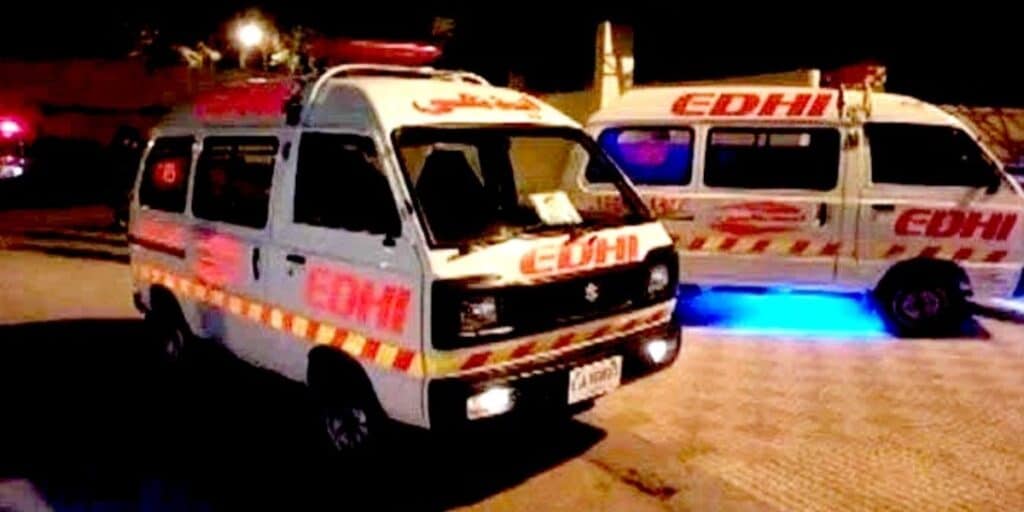Panjgur : A tragic road accident occurred between Washuk’s sub-tehsil Nag and Panjgur when two vehicles collided, causing both to burst into flames.
As a result, three people were burnt to death, while one sustained injuries.
Rescue 1122 volunteers quickly reached the scene and shifted the injured person along with the deceased to Panjgur Teaching Hospital for medical assistance and further procedures.
Earlier, Five people lost their lives in a tragic accident on the N-25 National Highway in Surab
According to news outlet sources, the accident occurred when a car collided with a truck in the Nagharh area of Surab, Balochistan.
All five occupants of the car, who were residents of Karachi, died on the spot.
Road accidents remain a serious concern across Balochistan, especially on highways such as the N-25, which connects major cities and is often used by heavy vehicles.
Poor road conditions, lack of safety measures, and reckless driving contribute to frequent mishaps, resulting in heavy loss of life.
Authorities have repeatedly stressed the need for stricter traffic enforcement, improved infrastructure, and awareness campaigns to reduce such tragedies.
Over the past ten years, Balochistan has witnessed a sharp rise in road accidents, often resulting in significant loss of life and injuries.
Highways like the N-25, Quetta-Karachi (dubbed the “Killer Highway”), as well as key links such as Lak Pass and N-25, remain hotspots.
Single-lane, narrow roads combined with sharp curves, inadequate signage, and poor road surfaces are frequent contributors.
From 2019-2024, data from the Balochistan Medical Emergency Response Centre shows over 46,000 traffic accidents in five years, injuring more than 63,000 people and causing 1,221 deaths.
In one year alone, 969 accidents were reported, resulting in 794 fatalities.
Motorcyclists and small-vehicle occupants often bear the worst impact; many do not use helmets or seat belts.
ALSO READ: Five people died in an accident on highway near Surab
Emergency response services are limited and remote areas suffer delays in rescue and medical treatment.





